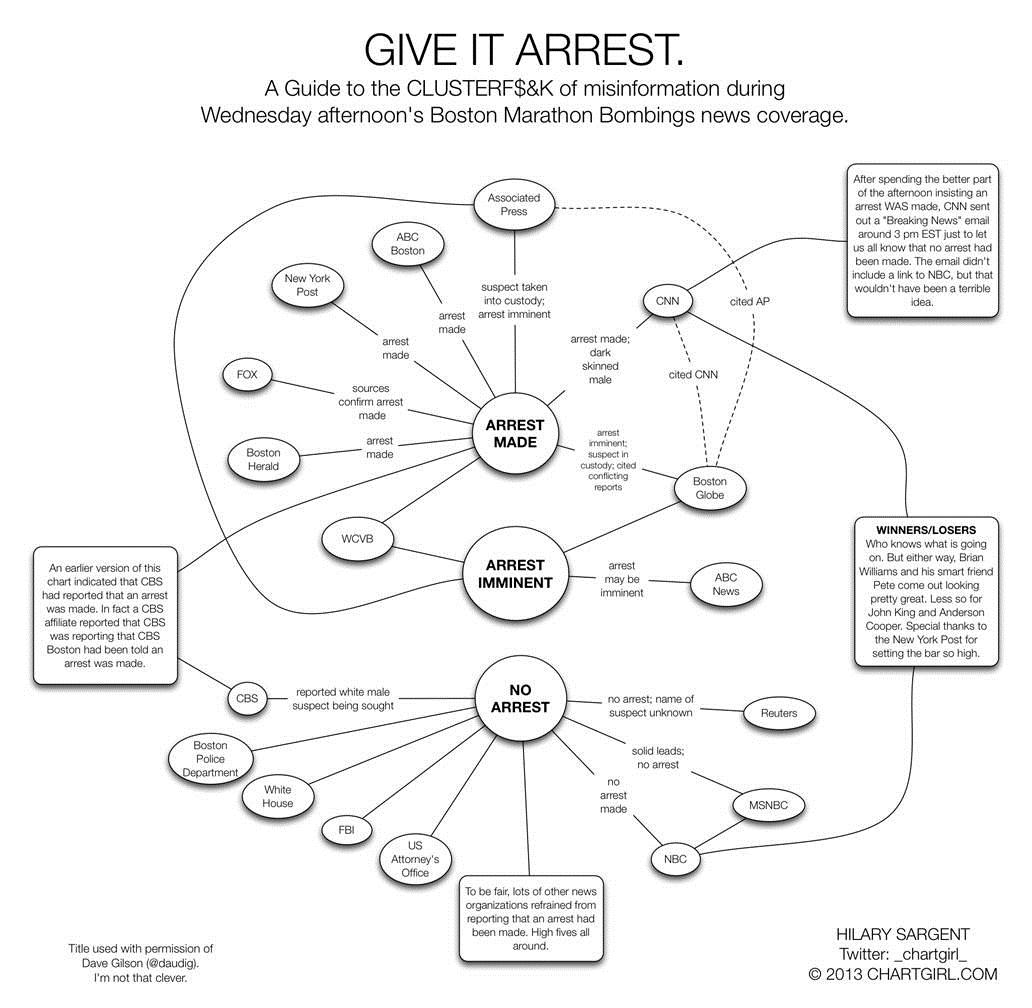A guide to the CLUSTERF$&K of misinformation re the Boston marathon bombing

Source: Balloon Juice
My WaPo column addresses this, but only in passing. Here is part of the original draft column that did not make it into the full paper:
“I agree with that sentiment, but as always, a few caveats are in order. Simon Ricketts of the Guardian has noted that “Twitter does its best work in the first five minutes after a disaster, and its worst in the twelve hours after that.” (@rolldiggity). Misinformation and error are not uncommon, especially in crisis situations.
Then there are the malicious liars. Shashank Tripathi was tweeting anonymously under the Twitter handle @comfortablysmug. He purposefully tweeted all manner of false information during Hurricane Sandy.
But even anonymous trolls like Tripathi got their comeuppance on Twitter. His false tweets about the disaster were almost immediately debunked by others, and he was soon outed as the campaign manager for Christopher R. Wight, GOP candidate for New York’s 12th Congressional District. Tripathi apparently thought sowing the seeds of confusion during crisis – the digital equivalent of yelling fire in a crowded movie theater – would somehow help his boss. It didn’t. Tripathi was fired, and Wight lost to Democrat Carolyn Maloney.”
See also:
-The F.B.I. Criticizes the News Media After Several Mistaken Reports of an Arrest (NYT)
-The New York Post’s disgrace (Columbia Journalism Review)
-Shameless paper in mindless fog (Reuters)
Related:
-How Social Media is Transforming the Financial Community (Open Markets)
-Good News Beats Bad on Social Networks (NYT)
-Bloomberg Jumps on ‘Twitter A-List’ After SEC’s Social Media Decision (AdvisorOne)


What's been said:
Discussions found on the web: